When you’re diagnosed with gestational diabetes, one of the first things you do is hop on Google and try to unravel what this will mean for your pregnancy and birth. A lot of the time, the search results are not reassuring.
They say you’ll need insulin, that you’ll need to be induced or have a C-section or deliver early (because your baby “will be big”), that your baby may need special care in the neonatal intensive care unit, and all sorts of other things that you weren’t planning for. Before you get sucked down the rabbit hole of possible outcomes, interventions, and the anxiety that comes with them all, hit the pause button.
These are NOT inevitable for all women with gestational diabetes. I repeat: these are NOT inevitable for all women with gestational diabetes.
Unfortunately, women and providers are expecting the worst of the worst. Perhaps they think that you’ll take the diagnosis more seriously if you’re aware of the consequences of uncontrolled blood sugar, but sometimes it creates more stress over an already stressful situation (and guess what stress does? It drives up your blood sugar!).
My colleague, Parijat Deshpande, an expert in high-risk pregnancy understands this first-hand. She not only helps women navigate and cope with having high-risk pregnancies, but she dealt with it herself.
Gestational diabetes was her 7th complication and in an interview we did, she shares her frustration in how her gestational diabetes was managed. Like so many other women, Parijat did not feel she was given the best information on GD to make informed decisions. I was cringing just listening to her story.
In our interview, we tackle some of the most common myths that women–and their doctors–have about gestational diabetes.
Gestational diabetes does not need to leave you feeling helpless or misguided.
There’s a more empowered way to navigate your way through pregnancy with GD. We’ll share how and why it’s so important to take a mindful approach. We also share tips to help you find the most supportive healthcare provider, so you can get the high-quality prenatal care (and respect of your birth choices) that you deserve.
Check out the interview on the Delivering Miracles Podcast with Parijat Deshpande, Episode 40 on iTunes or here.
How to Manage Gestational Diabetes Without Fear – Interview Highlights:
- You did not necessarily “do” anything to cause gestational diabetes–a number of risk factors are completely out of your control.
- Why asking “Why me?” and searching for reasons that you were diagnosed is often counterproductive.
- The reason you don’t necessarily need insulin. (psst: it’s not the primary way GD is managed!)
- The reason most women with GD will NOT have a big baby.
- Why there are always exceptions to the rules. Don’t assume you’re a statistic.
- How maintaining normal blood sugar levels puts you in control and lowers your chances of complications and interventions.
- The top 2 things you need to do when you’re first diagnosed with gestational diabetes.
- Why choosing a good provider who respects your choices, is supportive, and gives you all the information (pros and cons) to make any–and every–decision you face in your pregnancy and birth. (i.e. informed consent)
- Why staying off Google for information on gestational diabetes is probably best. Fear mongering is almost never empowering nor offers actionable information.
After listening to our interview, I hope you’ll feel that you can manage gestational diabetes without fear. It doesn’t need to be so overwhelming and terrifying. In fact, there’s a lot to feel empowered about.
When you have the right information, you can make evidence-based decisions on your care– on everything from your diet and lifestyle choices to your birthing options.
You can manage gestational diabetes without fear.
You can handle this. You can do this. You still have the power to make choices and take control of the trajectory of your pregnancy and birth. Own that.
Also remember that gestational diabetes is on a spectrum. Some women have very mildly elevated blood sugar that’s easily managed with lifestyle changes. Others may have preexisting blood sugar issues (prediabetes or type 2 diabetes) or maybe have significantly elevated blood sugar that requires more medical management. A small proportion of women will have uncontrolled blood sugar. Because all of these scenarios fall under the umbrella of gestational diabetes, the same worries and cascades of interventions may be placed upon women, even in cases where they may not be necessary.
The goal is normal blood sugar levels and if you can maintain that for the majority of your pregnancy, your likelihood of facing complications or requiring extra interventions are low.
Before you go, I’d love to hear from you.
- If you have gestational diabetes, what are your biggest fears?
- What information do you wish you would have been given at the very beginning to better manage your blood sugar and/or advocate for yourself?
Let us know in the comments below.
If you’ve just been diagnosed with GD or are finding it hard to maintain normal blood sugar when following the standard gestational diabetes diet, be sure to go through my FREE video series on managing gestational diabetes. Check it out here.
Until next week,
Lily
PS – Here are a few links we discussed today:
9 Myths About Gestational Diabetes
Evidence on Induction or C-section for Gestational Diabetes (Evidence Based Birth)
Does Gestational Diabetes always mean a Big Baby and Induction? (Evidence Based Birth)

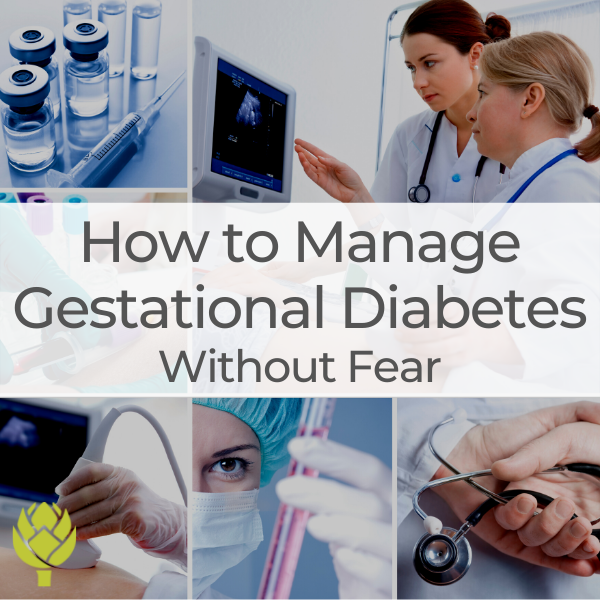

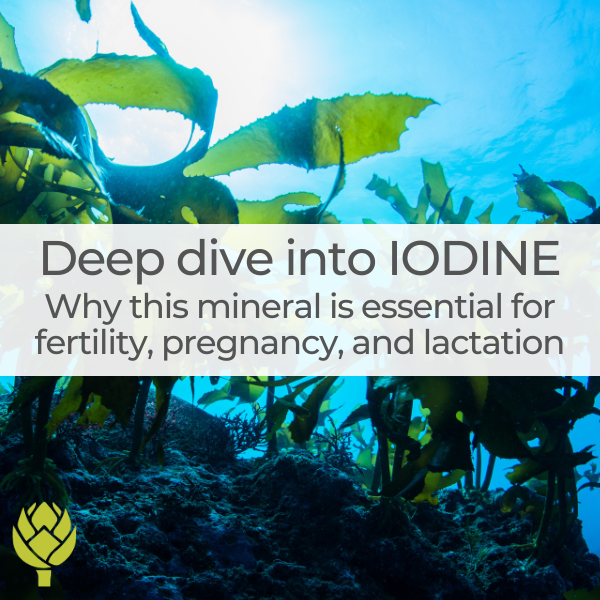
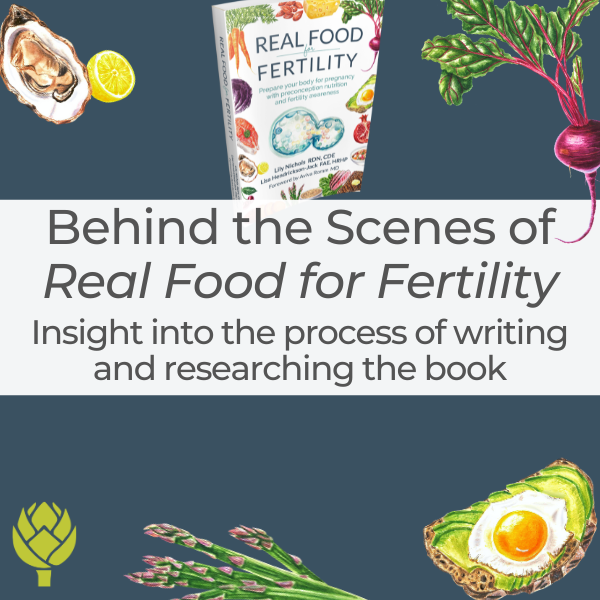
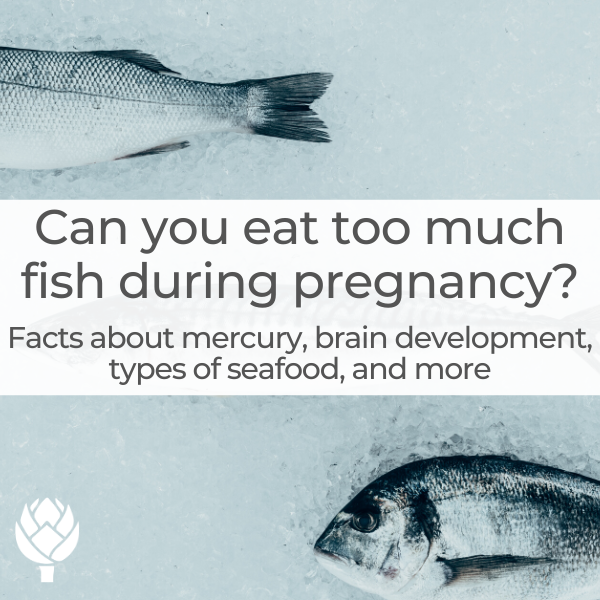
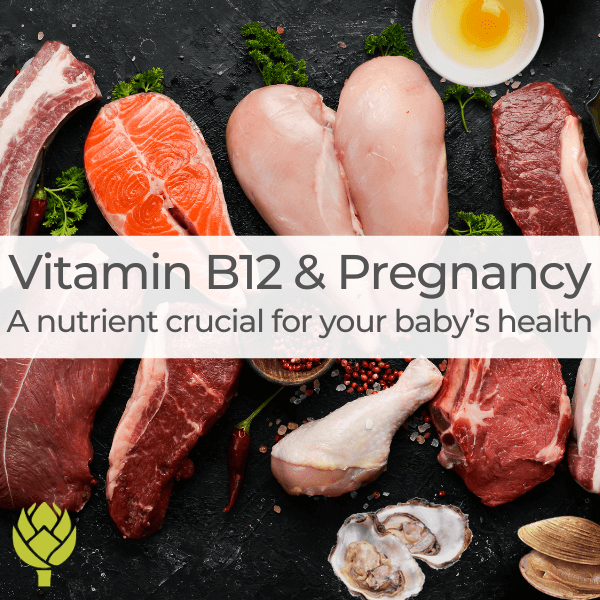



I love this! I hope you have more podcast interviews in your schedule in the near future as I have exhausted them all 🙂 I could listen to you talk about GD all day! There is such a need for more RDNs like you, and I wish there were schools with an option to take this approach rather than the SAD approach.
Also, I have random input for your website. If you could have a “search” for your blogs for keywords, it would be so helpful as I use them as reference often 🙂
Thanks for all you do!
Yes, I’m always doing interviews! I’m looking to put together classes specifically for health professionals on this topic. Stay tuned.
Good idea for the search option.
This was EXCELLENT, Lily. There’s so much fear around gestational diabetes and I, too, felt like it was difficult for me to wrap my head around what to do about it. I found your book — and then your online course — and that put a lot of my fears at ease. You’re so right about tackling the fear with knowledge. If more docs were actually up to date on how to manage GD, and were better at talking with their patients about it (without fat shaming or guilting them into C-sections), it would be a much different story. Thanks for filling in that gap and putting the power back to moms.
I wish I had just signed up for your course straight away, since that would have saved me weeks of worry (and high blood sugar from not knowing what to do PLUS all the stress that goes along with that). I’m glad I found your work though. You saved me from needing insulin and my son, Theo, was born at 7lb 10oz and had no isseus with low blood sugar. (My other son was over 10lb – I think I had GD, but was not diagnosed.) I can’t thank you enough.
My doctor always would come back to the “big baby” risk and worries for complications in labor. During my first GD pregnancy my daughter was measuring “big” and they were expecting her to be over 9 lbs. She was born 7 lbs 13 oz at 40 weeks. I opted for a home birth with a midwife for my 2nd GD pregnancy and would always ask about the potential complications if baby was large. They never seemed overly anxious and assured me that there was a lot they could do during labor to assist delivery of a large baby. Baby boy was born at home at 41 weeks and was 9 lbs. 3 oz. Overall labor was much less dramatic than with my first. I also enjoyed my pregnancy more. I followed much of what worked in my first pregnancy (thanks to you) and didn’t obsess about my blood sugar numbers. I hated that my first diagnosis automatically gave me a high-risk label, even t though studies show well-managed gd pregnancies are no riskier than a “normal” pregnancy. Incidentally my midwife said that anecdotally they tend to see larger babies in non-gd pregnancy more often than with their gd clients. I’m done having kids, but am forever reading your stuff on gd as I am still angry with how my diagnosis and subsequent unnecessary stress clouded the end of my first pregnancy.